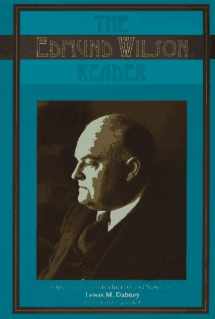
The Edmund Wilson Reader
Book details
Summary
Description
A gifted novelist, poet, playwright, and historian, Edmund Wilson (1895–1972) served on the staffs of Vanity Fair, New Republic , and New Yorker , but is best known for the grace and insight of his literary criticism. Whether illuminating the Symbolist poets and modernist literature in Axel's Castle, recording the events and everyday pulse of the Great Depression in The American Earthquake, or exploring the consciousness of Civil War America in Patriotic Gore, Wilson's formidable intelligence grappled unceasingly with literature and history and with the minds and personalities who made them. Here in one volume is a representative selection from Wilson's diverse oeuvre. In addition to autobiographical writings and letters to F. Scott Fitzgerald, John Dos Passos, Thornton Wilder, and Vladimir Nabokov, the editor has included Wilson's essays on Edna St. Vincent Millay, T. S. Eliot, James Joyce's Ulysses , Arthur Rimbaud, Henry Ford, Karl Marx and Friedrich Engels, Alexander Pushkin, Charles Dickens, Ernest Hemingway, Harriet Beecher Stowe, Ulysses S. Grant, Justice Oliver Wendell Holmes, and much more. This collection—expanded to include Wilson's essays on Trotsky and the lure of detective fiction; his best short stories and poetry; and selections from all of his journals—offers readers the opportunity to partake of an incomparable intellectual feast.


We would LOVE it if you could help us and other readers by reviewing the book
Book review



